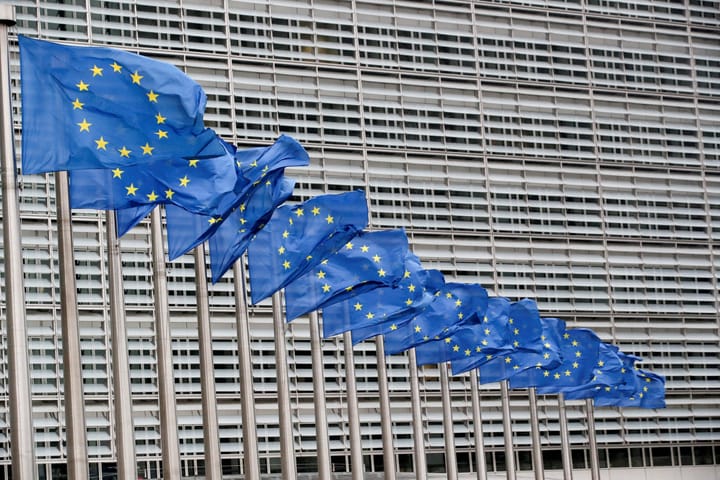Biden’s strife with Russia continues, as Putin calls his observations “anti-Russian rhetoric”

A few minutes every morning is all you need.
Stay up to date on the world's Headlines and Human Stories. It's fun, it's factual, it's fluff-free.
Biden has been largely critical of Russia throughout his presidential campaign, claiming Moscow to be the biggest threat to the US elections
Russian President Vladimir Putin on Wednesday, October 7, called United States Democratic presidential candidate Joe Biden’s observations about Moscow “anti-Russian rhetoric.”
“As far as the candidate from the Democratic Party is concerned … we also see quite sharp anti-Russian rhetoric. Unfortunately, we are used to this,” Putin said during an appearance on state television, adding that Russia was ready to work with any US president.
However, Putin also stated that Biden’s comments on arms control were a welcome sign for the US-Russia relationship going forward.
“Candidate Biden publicly said he was ready for an extension of New START or to reach a new treaty to limit strategic weapons, and this is a very serious element of our cooperation in the future,” Putin said, referring to New START, the last major nuclear arms agreement between the two nations that is due to expire in February 2021.
No breakthrough has been achieved so far regarding a new treaty or an extension. However, the Trump administration’s envoy for arms control stated on Tuesday that “important progress” had been made in the negotiations with Moscow.
Biden has been largely critical of Russia throughout his presidential campaign. In September, Biden claimed that, according to his intelligence briefings, Russia was the biggest threat to the US elections.
“There are a lot of countries around the world I think would be happy to see our elections destabilized. But the one who has worked the hardest, most consistently, and never has let up is Russia," Biden said on September 4, adding that any country which tried to delegitimize or impact American elections would be in direct violation of the sovereignty of the US.
Biden’s statement followed Attorney General William Barr’s claim that China, not Russia, was trying to create strife in American politics.
Speaking to CNN on September 2, Barr said, “Because I’ve seen the intelligence. That’s what I’ve concluded.”
An American intelligence assessment released in August suggested that Russia was planning to sabotage the US presidential election in November and that Moscow was attempting to undermine Biden’s candidacy while supporting President Donald Trump.
According to the assessment, Russia was trying to resort to a “range of measures” to disparage Biden because he supported pro-democracy groups opposed to Putin, during his stint as the US Vice President under the Obama administration. Although the assessment did not outrightly accuse Moscow of conspiring to get Trump reelected, it alleged that some “Kremlin-linked actors” were striving to bolster Trump’s reelection campaign on social media.
However, Trump denied the assessment made by his own top intelligence officials.
“The last person that Russia wants to see in office is Donald Trump. “I don’t care what anybody says,” Trump said during a press briefing on August 7.
The report also accused China and Iran, two countries with which Washington’s relations have consistently deteriorated in recent months, of trying to interfere in US politics.
Without blaming China directly, the report said that Beijing preferred Trump’s loss in the elections because it saw him as an “unpredictable” US president. It stated that Beijing was weighing “the risks and benefits of aggressive action” in response to Trump’s targeting of Chinese social media platforms like TikTok and holding China responsible for the COVID-19 pandemic.
“Beijing recognizes that all of these efforts might affect the presidential race,” the report mentioned.
Iran’s designs to subvert Trump and several US democratic elections were also cited in the report, stating that Tehran was likely to run a disinformation movement on social media against Washington in the run-up to the presidential election in November. It added that Iran was driven by its belief that Trump’s reelection “would result in a continuation of U.S. pressure on Iran in an effort to foment regime change.”
The Democratic lawmakers put their weight behind Biden’s assertion concerning Russia, claiming that “Russia’s malign interference campaign” was a major threat to US politics. They also criticized the intelligence officials for suggesting that China and Iran were as big threats as Russia.
In July, Biden warned Russia and other foreign powers against interfering in the US elections, assuring that his administration would act aggressively if he became the President. Biden affirmed that he would treat foreign interference as “an adversarial act that significantly affects the relationship between the United States and the interfering nation’s government.”
“If any foreign power recklessly chooses to interfere in our democracy, I will not hesitate to respond as president to impose substantial and lasting costs,” Biden said on July 20.
Have a tip or story? Get in touch with our reporters at tips@themilsource.com




Comments ()